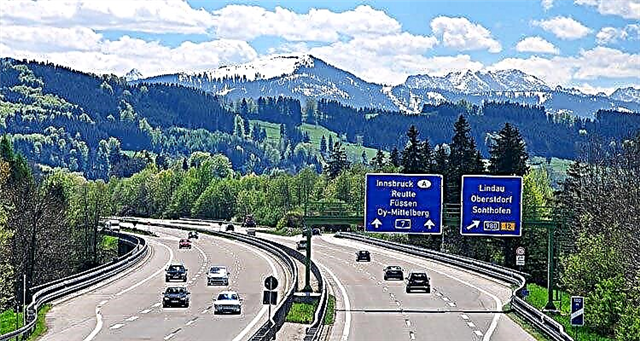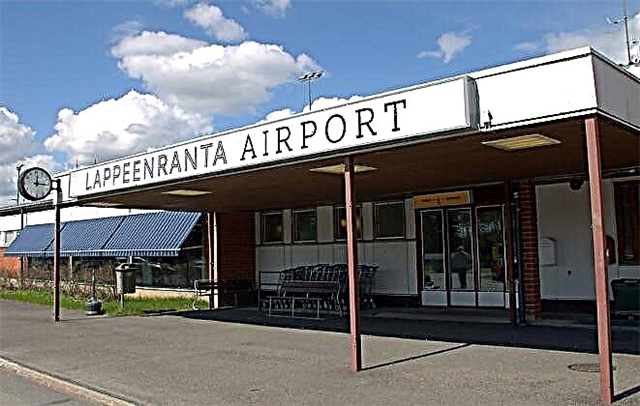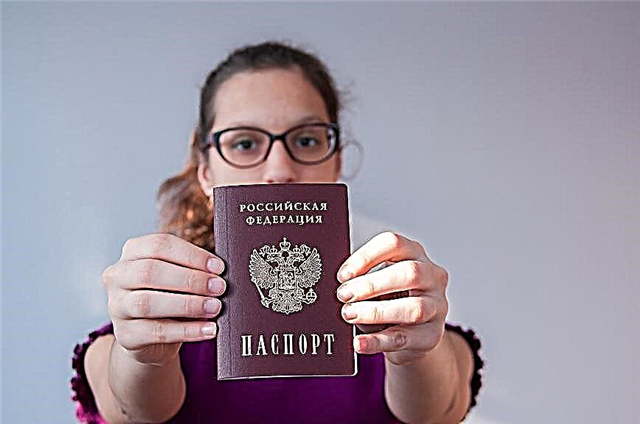Opinions about whether Russians live well or badly in Bulgaria can be heard radically opposite. It all depends on how much time has passed since emigration, in which city the family has stayed, what do the adults do and where they work. When planning a move to this part of Europe, it is important not to confuse the life of a migrant and a tourist and make allowances for the fact that the euphoria of “how everything is better here than at home” will someday pass.

The size of the Russian diaspora
According to the National Migration Service, which regulates and guides this process, in the period from 2000 to 2021, about 5,200 people from the CIS countries moved to Bulgaria. Most of them managed to legalize on the basis of Bulgarian roots.
The leaders in the overall ranking are occupied by Moldovans. The general list of supplying countries of migrants looks like this:
- Ukraine;
- Serbia;
- Russian Federation;
- Israel;
- Albania;
- Turkey.
A separate group should be allocated to those who have just received the status of a residence permit. Most of them are students or property owners.
In general, the Russian diaspora today is the third largest in the Bulgarian territory. Russian settlements in Bulgaria can be found in Sofia, Varna, Burgas, Plovdiv.
The bulk of the settlers are middle class or wealthy Russians:
- those who can afford not to live paycheck to paycheck (they mainly receive income from business in their homeland);
- those who have always dreamed of settling by the sea and found the means to buy real estate;
- those who got a well-paid job or decided to start their own business in Bulgaria.
How Russians are treated in Bulgaria
How Russians are treated in Bulgaria in 2021 and how it was 50 years ago have completely different contexts. The older generation still remembers the former friendship and the Soviet past that united the peoples. Young people have to shape their views in modern realities, in conditions of political instability and the migration crisis.
And yet, according to those who chose this country as their new homeland, they did not feel any obvious difficulties in relations with the local population. Bulgarians are still friendly towards Russians, with due respect and understanding.
A visitor should always remember that a new country has its own history, traditions and foundations. The correct solution would be not to try to change the society around you, but to try to integrate into it as much as possible.
The attitude of Bulgarians towards Russian tourists also does not have clearly expressed polar characteristics: it cannot be called either too good or too bad. Moreover, before the situation between Russia and Ukraine became more complicated, very few people in Bulgaria could tell a Russian from a Ukrainian or from a Belarusian. All representatives of these former fraternal republics were citizens of one state for local residents.

How is the adaptation process going?
Those who come to Bulgaria for a long time claim that the adaptation process is about the same for everyone. For the first six months, emigrants are in a feeling of complete euphoria: the food is of better quality, the climate is milder, the people are friendlier.
But the feeling of complete happiness passes as the money allocated for the first time begins to melt away. After that, the issue of employment arises.
At the beginning of autumn 2021, the unemployment rate was 5.3%, and in 2021 - 6.8%. If we consider that Bulgarians go to work in Western Europe (mainly due to low salaries in Bulgaria itself), then we can assume that emigrants here are having a hard time. Moreover, it is not allowed to work on a residence permit in the country.
To get a job in a Bulgarian company, you need to get permanent residence and learn the state language.
To make the adaptation process faster, you need to take a number of steps:
- master the Bulgarian and English languages;
- study the local mentality;
- establish friendly relations with the immediate environment, make friends;
- provide a steady income;
- prove that you are of value to the local community.
Communities and the Russian diaspora
All the information on how to join compatriots can be found on the website of the Russian diaspora in Bulgaria. The foundation on which it was organized was the similarity of languages, religious and cultural values of peoples. The number of the diaspora today is approaching 20 thousand people.
The activity is based on a simple principle - helping the Russian people. The Russian Orthodox Church also makes a significant contribution to the unification of compatriots.
You can find Russian communities not only in the Bulgarian capital. The Russian community in Nessebar, which unites emigrants who moved to Sunny Beach in Bulgaria, is widely promoted.
At the end of May 2021, a presentation of the representation of the Russian diaspora took place in the largest city in the southeast of the country - Burgas. The administration of this organization has the authority to apply to government agencies on the protection of the rights of Russian migrants, and also provides algorithms for action in difficult situations arising among migrants. Russian communities in Burgas are also represented by the organization “Russian Center-Burgas”, “Union of Compatriots”.
Where is the best place to live in Bulgaria
It is impossible to say unequivocally which city is suitable for life. In any case, everyone should choose for himself, based on the purpose of his move, needs and requests.
- When it comes to getting an education or teaching children, then it is difficult to find a better place than Sofia. The authoritative higher educational institutions of the country, prestigious private and state schools are concentrated here.
- Someone chooses the places where most Russians live in Bulgaria. This allows you to feel less nostalgic. These cities include Sofia, Burgas and Nessebar. But it should be remembered that Burgas is an old port settlement. It is unlikely that you will be able to enjoy complete comfort and peace in it.
- For a measured and peaceful life, Plovdiv and Varna are more suitable. The first, according to many emigrants, is considered the most interesting city in the country after Sofia, and the second is located on the seashore, which gives certain advantages. For many, it matters whether Russians live in Plovdiv. The community is not very large - just over a thousand people.
- When planning to settle in Bansko, you should remember that this is a small ski resort, where the greatest activity is observed precisely in winter. Many tourists come here on vacation in the summer, but at this time of year life stops.
- The population of Sozopol is 6 thousand. This town is the oldest on the Bulgarian coast and has a mild climate even in winter. Many festivals and championships take place here. Russian interest in this part of the country has always been very high.
- An apartment in Primorsko will be a good solution for those who need treatment and dream of living by the sea. A small, cozy, green town with a beautiful coastline attracts many migrants. Here you need to be prepared for the fact that 90% of the neighbors will be Russian.
- The way Russians live in Sandanski is conditioned by its location. This is one of the most famous balneological resorts in the country. That is why everyone who suffers from pulmonary diseases, asthma strives to move here.
A little about the standard of living in the country
Bulgaria is an agrarian state. Therefore, the cost of local products in some regions is even less than in the homeland of migrants. Prices in Bulgaria do not tend to grow rapidly, which is due to a certain stability of the Bulgarian currency.
Specialists are also required in the following areas:
- processing industry - 30.3%;
- trade - 14.7%;
- restaurants and hotels - 11.9%.
The most developed regions of the country are resort and industrial zones, as well as the capital. Accordingly, prices for food and housing will be higher here.

On average, the cost of one square meter of real estate in Sofia is 45-75 thousand rubles, in Varna - 50-125 thousand. The cheapest thing is to buy housing in Plovdiv - 30-65 thousand rubles. But in a rural area or an area remote from the coast, you can buy an apartment for only 4 thousand euros.
Life in Bulgaria can hardly be called secured. The average salary is 540 euros. Programmers and engineers receive the most.
How pensioners live in Bulgaria
Most recently, the Bulgarian authorities raised the retirement age: 64 years and 1 month for men, 61 years and 2 months for women. From January 1, 2021, in order to go on a well-deserved rest, women need to earn 35.5 years of experience, and 38.6 years for men.
The diaspora of Russian pensioners in Bulgaria is quite numerous. Most of them settled on the sea coast (about 80%), another 5% settled in the areas of ski resorts, the rest bought real estate in the central part of the country, preferring to engage in gardening and horticulture.
The minimum pension in Bulgaria is small - 207.6 Bulgarian leva (approximately 7.5 thousand rubles). From 1 July 2021 it will be increased to 219 leva. Emigrant retirees live on benefits they receive in their home country or on rental income.
Outcomes
For convenience, we present the pros and cons of moving to Bulgaria in the table:
| Advantages | disadvantages |
|---|---|
| Comfortable climatic conditions, favorable ecology, proximity to the sea. | Difficulty finding a job. |
| In some cities, you can feel like a real resident of Europe. | Large expenses for the maintenance of real estate. |
| Inexpensive real estate, the ability to quickly apply for a residence permit when buying it. | The need for nostrification of the diploma. |
| Favorable conditions for starting a business. | A small number of rights and benefits in the presence of only a residence permit. To live on an equal footing with the Bulgarians, you need to get at least permanent residence, but ideally - citizenship. |
| Opportunity to get an education of the European level. | Expensive medicine for non-residents. |
| Security. |
The above can be summarized as follows: in the presence of passive income at home, Bulgaria can be considered as one of the most affordable options for emigration.











